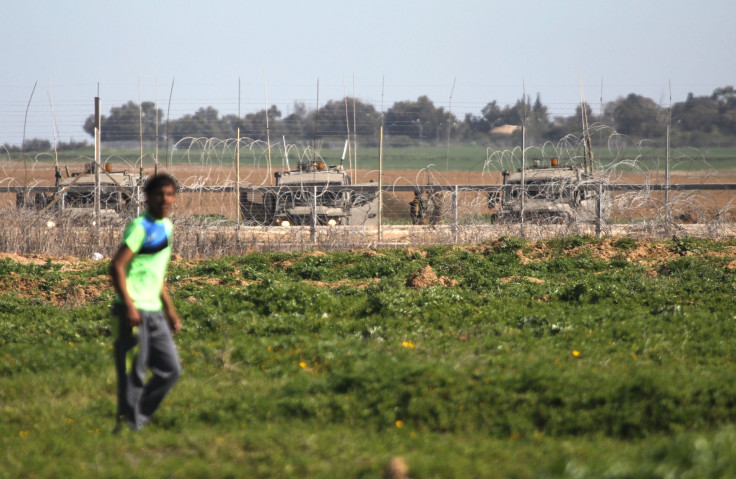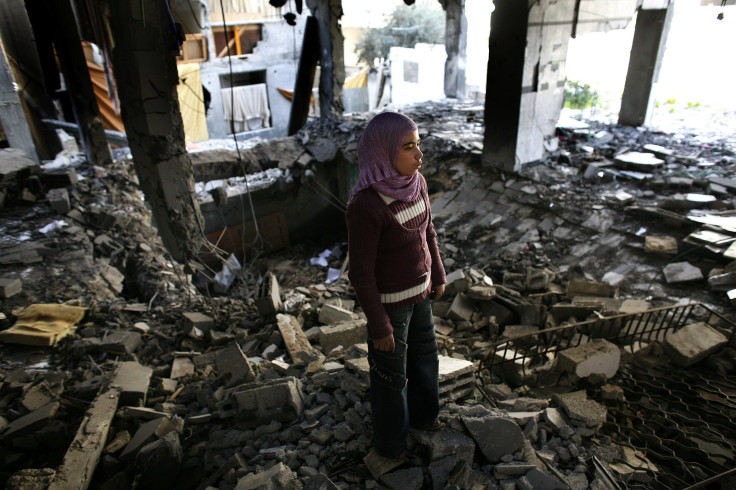Gaza Human Rights: Israel Says There Is 'No Humanitarian Distress' Despite War And Economic Sanctions

Less than a year after a brutal Israeli assault on the Gaza Strip killed 2,100 Palestinians and just a month after a scathing international report said unemployment rates in Gaza are the highest in the world, the Israeli minister of defense offered a startling statement to the contrary.
"There is no humanitarian distress in Gaza," Moshe Ya'alon told correspondents Monday, Ha'aretz reported. "If they were to decide to export strawberries from Gaza instead of rockets, the situation would be entirely different," he added, although he allowed that circumstances in Gaza weren't "pleasant."
Ya'alon also said that the armed Palestinian resistance group Hamas was still trying to produce rockets and weapons, even though they were of a lower quality now that materials were no longer being smuggled from Egypt into the strip. He added that Israel and Hamas were not in contact regarding a ceasefire.
Opinion: Moshe Ya'alon and Michael Oren's arrogance toward Obama harms Israel's security http://t.co/qchx9mFJzg pic.twitter.com/85ey5ENtuh
- Haaretz.com (@haaretzcom) June 29, 2015His remarks came roughly a month after the World Bank issued a report on Gaza's choked economy and attributed the distress to "blockades, war and poor governance." Had the Israeli blockade not been implemented, exacerbated by war and other sanctions, the Gaza Strip's gross domestic product would be four times higher than it is today, the report estimated. Of the 1.8 million inhabitants packed into the Gaza Strip's roughly 150 square miles, 43 percent are unemployed; youth unemployment is even higher, at 60 percent.
"The ongoing blockade and the 2014 war have taken a toll on Gaza's economy and people's livelihoods," Steen Lau Jorgensen, World Bank country director for the West Bank and Gaza, said, according to the report, which called the situation in Gaza "unsustainable."

On July 8, 2014, Israel began its offensive against Gaza, carrying out some 5,226 airstrikes and killing 2,104 people, the vast majority of whom were civilians, the BBC reported. Hamas, the authority that controls Gaza, fired 4,591 rockets and mortars at Israel. Six Israeli civilians and 67 Israeli soldiers died in the conflict, which came to an uneasy ceasefire in August 2014. The United Nations estimated that by the end, nearly half a million people in Gaza had been displaced and 17,200 homes were damaged or destroyed. Half a million children were unable to start school that fall.
After the war, in September 2014, one estimate stated that 90 percent of Gazans lived below the poverty line. Students in Gaza can be expected to attend school for an average of 13 years, according to the CIA World Factbook. Israeli security and border controls in the past decade have "degraded" Gaza's economy, leading to "high unemployment, elevated poverty rates, and a sharp contraction of the private sector," it adds. An Egyptian crackdown on a network of smuggling tunnels in 2013, meanwhile, led to shortages of necessities.
© Copyright IBTimes 2024. All rights reserved.






















